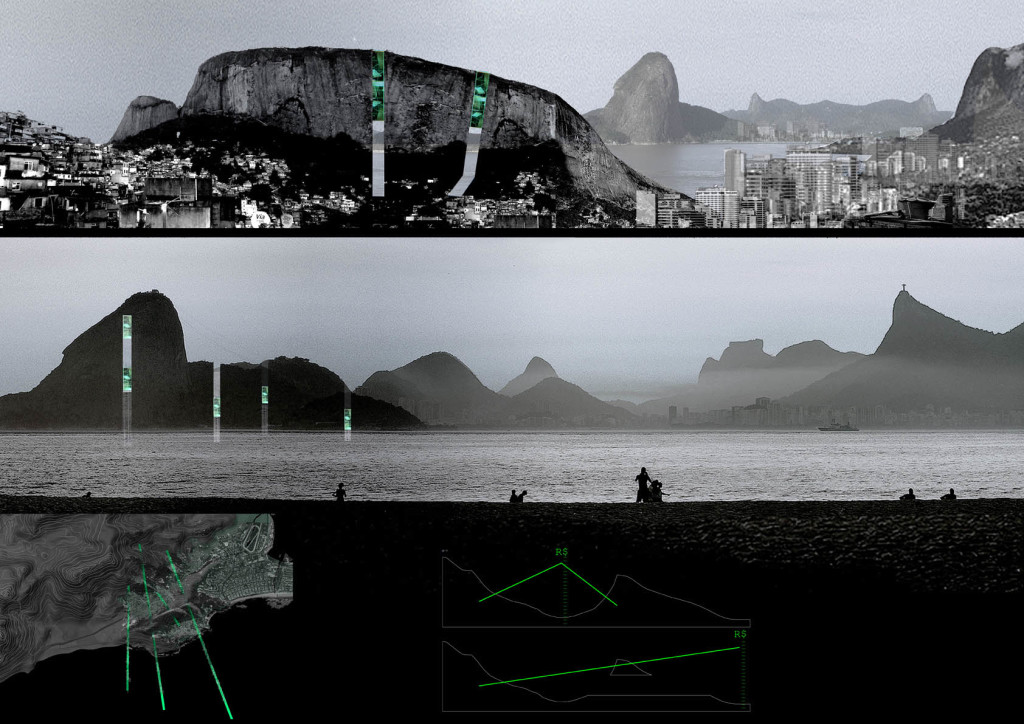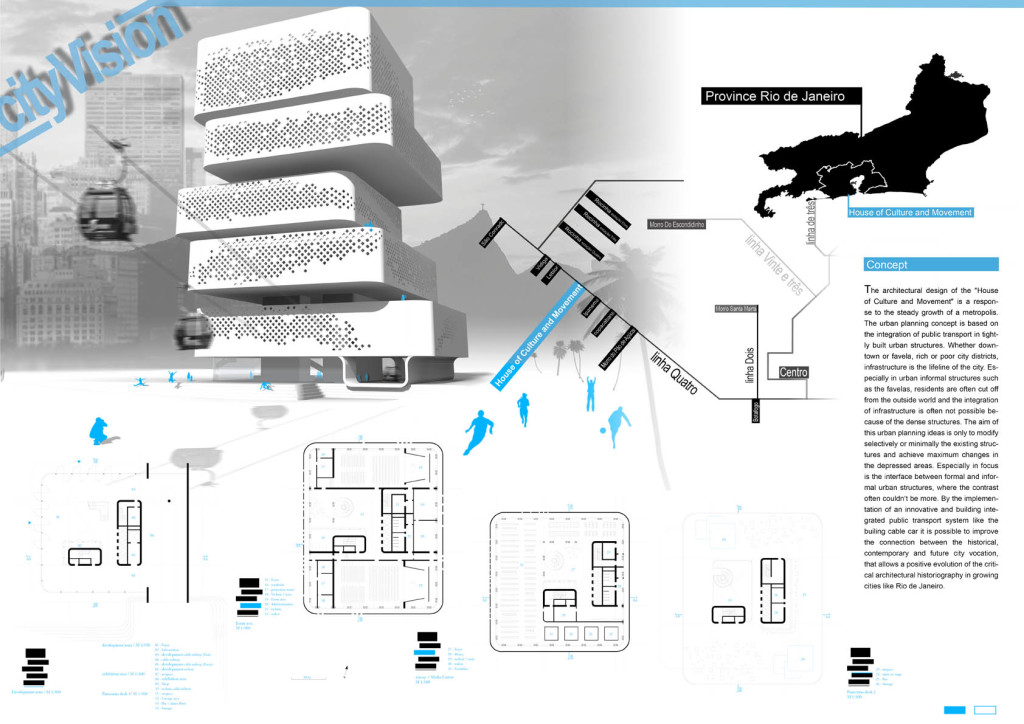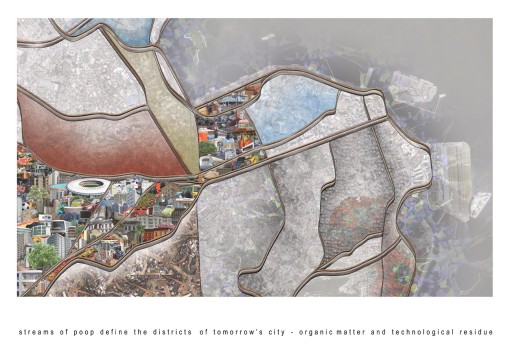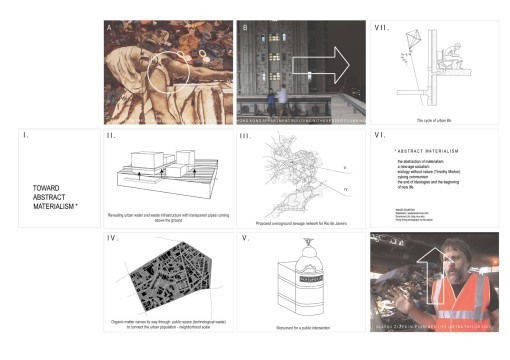Info:
Title: Toward abstract materialism* - Code: 2cedfContest: Rio de Janeiro / 2013
By: Stathis Gerostathopoulos
Views: 4339 Likes: 0
Votes:
Alejandro Zaera-Polo 9 Jeffrey Inaba 4 Jeroen Koolhaas 3 Hernan Diaz Alonso 1 Cristiano Toraldo di Francia 7 Pedro Rivera 65.0
Toward abstract materialism*
“So I think that what we should do to confront properly the threat of ecological catastrophe is not all this New Age stuff, to break out of this technological manipulative mold and to find our roots in nature … We should develop, I think, a much more terrifying new abstract materialism, a kind of a mathematical universe where there is nothing. There are just formulas, technical forms and so on. And the difficult thing is to find poetry, spirituality, in this dimension. To recreate -if not beauty- then [an] aesthetic dimension in [..] trash itself.” Slavoj Žižek in Examined Life [BREAK] This proposal for the city of Rio de Janeiro starts from the notion that false beliefs, ecological, but also political and economic ideologies, have their roots in the problem of the toilet: when you flush it, shit disappears (Žižek). To move beyond the constraints of ideology, the collective sewage that is produced in the city every instant will be completely visible, traveling through a network of overground transparent pipes to waste-treatment facilities, strategically placed in the heart of each neighborhood. These will also function as collection points for recyclable materials, in order to cut short the journey of our waste to the mega-dump’s distant foreign world. [BREAK] A Metropolis for our times: /A. A garbage truck unloads its contents in the world’s largest dump, Jardim Gramacho, just outside Rio de Janeiro. A group of people without specialized equipment are ready to dig in the giant heap of garbage. People and objects become one in this scene from Lucy Walker’s film Wasteland, as the pickers of recyclable materials struggle to maintain their dignity amidst a condition that the urban dwellers conveniently forget after every walk to the garbage bin. /B. The image is of the side of a typical high-rise apartment building in Hong Kong. It shows a housing estate, where the Hong Kong working class traditionally found a tiny room to call home in the crowded former colony, pressed between the massive power of capital and limited ground space (and their own ambitions). You can read the layout of the units, or at least the position of the bathrooms and kitchens from the exposed plumbing on the exterior wall. Clean and waste-water here becomes a silent register of the lives that are neatly contained in the towers of a million bathrooms. /C. The Slovenian philosopher Slavoj Žižek talks to the camera while a machine in the background is rearranging the contents of a pile of garbage in an East London recycling center. The scene is from Astra Taylor’s film Examined Life, where Zizek explained his thesis against ecology. He rejects contemporary ecological discourse as an oppressive ideology in favor of a more holistic theory of coexistence. This, as Timothy Morton explains in his book Ecology Without Nature with a similar thesis, is best described in notions of animal and human habitats that are becoming more and more similar in contemporary manufactured landscapes.
Info:
Title: Toward abstract materialism*
Time: 4 agosto 2013
Category: Rio de Janeiro
Views: 4339 Likes: 0
Tags: -








